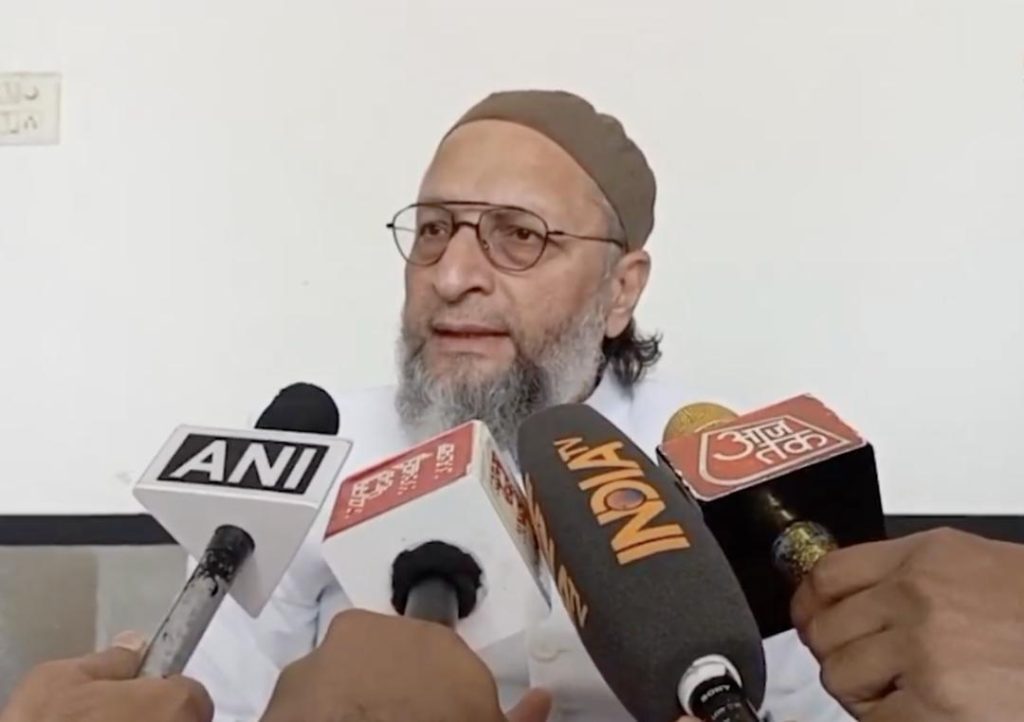
Arrest 4-5 ministers & govt is gone: Owaisi on PM-CM removal Bills
The recent developments in the Indian political landscape have been marked by a series of dramatic turns, with the government introducing bills aimed at strengthening the country’s governance structure. The latest addition to this list is the Constitution (130th) Amendment Bill, which provides for the removal of Prime Ministers, Chief Ministers, and ministers arrested for at least 30 days. Asaduddin Owaisi, the chief of the All India Majlis-e-Ittehadul Muslimeen (AIMIM), has spoken out against this proposed bill, stating that it is a dangerous move that can lead to chaos in the country.
In a recent interview, Owaisi expressed his reservations about the bill, saying that it would grant the President the power to remove the Prime Minister without any checks and balances. “Just arrest four-five ministers, and government is gone,” he stated, emphasizing the potential consequences of this bill.
Owaisi’s concerns are not unfounded. The Constitution (130th) Amendment Bill seeks to amend Article 74(3) of the Constitution, which deals with the removal of the Prime Minister. According to the proposed bill, the President can remove the Prime Minister if they are arrested for at least 30 days and are unable to perform their duties. This move has raised questions about the checks and balances in the country’s governance structure and the potential for abuse of power.
The AIMIM chief argues that this bill is a clear violation of the principles of democracy and the separation of powers. “This proposed bill is saying that the President can remove the Prime Minister. What is this?” he asked, emphasizing the importance of the Prime Minister’s position in the country’s governance structure. “The Prime Minister is not just a ceremonial post. It is a post that requires the confidence of the majority in the Lok Sabha,” he added.
Owaisi’s concerns are not limited to the removal of the Prime Minister. He is also worried about the impact of this bill on the functioning of the government. “If the Prime Minister can be removed at the whims and fancies of the President, what is the guarantee that the government will not collapse?” he asked. “The bill is not just about the removal of the Prime Minister. It is about the removal of the government,” he added.
The AIMIM chief is not the only one who has expressed concerns about this bill. Several other opposition parties, including the Congress and the Left Front, have also criticized the bill, saying that it is an attempt to undermine the country’s democratic institutions. The bill has also been criticized by several experts, who argue that it is a violation of the principles of the Constitution.
Despite the opposition to this bill, the government has pushed ahead with its implementation. The bill is expected to be tabled in the Lok Sabha soon, and the government is likely to seek the passage of the bill at the earliest. However, Owaisi’s comments have highlighted the concerns that many people have about this bill, and it is likely that the bill will face opposition from various quarters.
In conclusion, the Constitution (130th) Amendment Bill is a significant development in the country’s political landscape. While the government may see this bill as a way to strengthen the country’s governance structure, it is clear that many people, including Owaisi, are concerned about the potential consequences of this bill. As the bill is set to be tabled in the Lok Sabha, it remains to be seen how the government will respond to the opposition to this bill and whether it will be able to pass the bill with the required majority.






